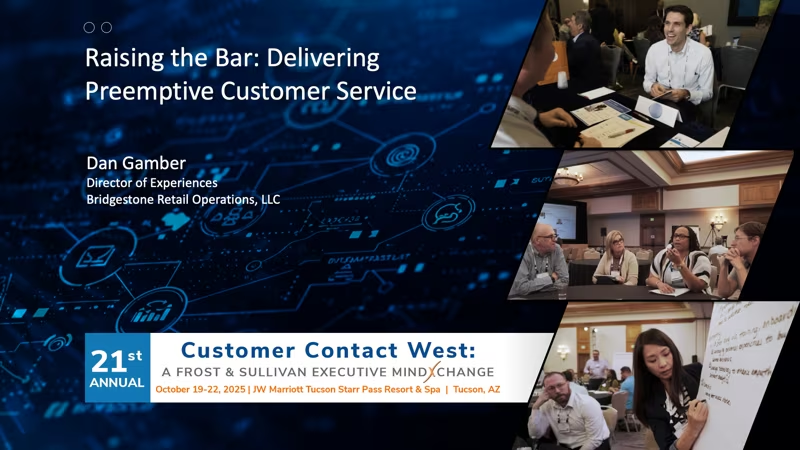Contact center agents should absolutely never make up answers when speaking with customers. This is a difficult and serious job – definitely not a place for jokes. So how did performing wacky unscripted comedy prepare me for this business?
A thousand possible scenarios with a thousand policies and solutions you have to know. Millions of potential callers with unique attitudes, needs, personalities, and technology and language barriers. When you are waiting in the phone queue for your next call to patch through, you never know what’s coming.
As a defense mechanism against taking escalations personally, I found myself drawing on my college improv days, imagining I was on stage playing the character of a great call center rep. These calls are my scenes, and these are my lines. What would that character do?
Accept
The first and only rule of improv is “yes, and.” This means accepting as true the information that the other actors introduce to a scene and then moving forward within that world.
In improv, where there are usually no props, all the audience has to go on are the actors’ words and actions. If one actress says “Look out for those giant turtles!” and her co-star responds with “What are you talking about? There are no turtles,” the audience doesn’t know whom to believe or what is going on, and it will fall flat. On the other hand, if the second actor accepts the reality of these giant turtles, the scene can proceed and hopefully something funny happens when we meet the giant turtles.
The same principle applies to customer service, especially on the phone, where I can’t see the error message or defective product. The customer always needs to be heard and given a “yes.” This doesn’t mean that you should break policy to do whatever the customer asks, but you do need to listen, accept the reality of their experience, mirror their sense of urgency, and move the scene call forward from there.
Create and Solve
While “yes” is all about listening, “and” is about creativity, and is easily the more terrifying part of improv. To make it easier (or harder), most improv games have some kind of limitation or gimmick. Maybe in one game, the actors can only respond in sentences of five words. An actor has to stand up whenever an arbitrary buzz word is said. The limitation can be anything.
These gimmicks force the players to solve the game. How do I get to the logical conclusion of this story in five words? How do I explain why I just stood up? All while staying in the context of the scene, agreeing with the other actors, and – if you’re really good – trying to find a punchline.
Justifying your characters action’s and resolving scene conflicts within boundaries sharpens real problem-solving skills. However, instead of just making up something funny, which is the goal in an improv scene, the appropriate response on the phone is to solve whatever issue prompted the call, and your limitations in this game are to do it within the expected handle time, adhere to policies, and explain the solution in language your caller will appreciate.
Trust
Real “yes” listening can build powerful trusting relationships both among employees and between employees and customers.
I have to trust that the customer is being truthful about the reason for their call, and from that place of understanding and personal ownership of what the customer is telling me, I can respond naturally in a way that they will also trust me and my company in the pursuit of their solution.
I learned to trust myself and my colleagues enough that I could jump right out into the queue, not knowing what might happen, and say “Yes, I understand the issue, and here’s how we’re going to fix it.”
I did something radical and started a company improv club. We’ve even incorporated some games into new hire training. Laughing together and being vulnerable through silly games and performances has cracked open a universe of relationships that are not normally possible in a contact center environment, where most of the staff is tied to a hierarchy and a headset for most of the day.
It wasn’t long before I wasn’t playing a character anymore; my team and I were genuinely listening, solving problems and actually getting better at this job.
Investing the time for improv and other soft training has been as valuable as training concrete job tasks and has yielded time and money in the long term in better communication and increased confidence, engagement, and trust.
Plus, if you can handle the bizarre utterances that spill out of your colleagues’ faces in improv, then you can handle anything that’s lurking in the phone queue.
Do I dare even say it becomes fun?
Currently Library Research Coordinator, Duke University Press, Evan Watson delivers the metadata for books and journals to discovery services and library customers. Previously, he was Lead Specialist, Documentation and Controls and Lead Advisor, Member Services for the Association of International Certified Public Accountants (AICPA). As Lead Advisor, he consistently exceeded team service metrics in responding to member and customer inquiries via phone and email channels and trained and mentored new hires. Evan introduced changes in training methods that helped to improve the team culture and reduce agent attrition.



